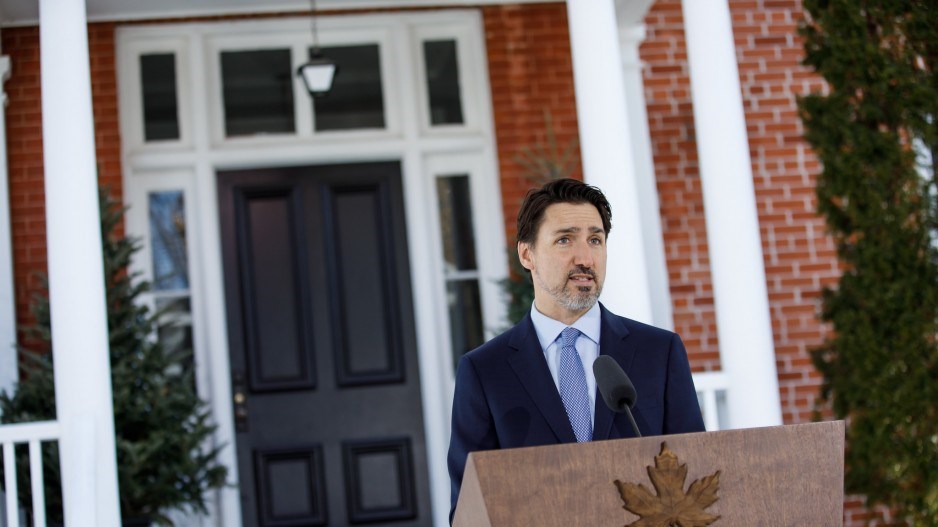The federal government is introducing new measures totalling $9 billion to assist students facing a summer in which seasonal work is unlikely to materialize.
Prime Minister Justin Trudeau announced Wednesday (April 22) the introduction of a monthly benefit worth $1,250 that would extend from May to August.
The Canada Emergency Student Benefit goes up to $1,750 a month for students with disabilities or for those who have to take care of someone else.
Accessible through the Canada Revenue Agency, it will apply to current students as well as those who graduated stretching back to December 2019.
“Normally at the beginning of May [students would] be looking for summer jobs. This is something that’s obviously not going to happen the same way or as easily this year,” Trudeau said during his daily media briefing outside his home in Ottawa.
“At the same time we recognize that there are further gaps that we need to continue to work on.”
He promised the federal government would soon be creating 76,000 jobs for young people in addition to the Canada Summer Jobs program, adding specific support would be introduced for Indigenous students as well.
Ottawa is also launching the Canada Student Service Grant for students who volunteer to address COVID-19-related issues.
Those summer volunteers will be eligible for $1,000-5,000, depending on how many hours they work.
Graduate students will be able to tap into $291 million in extended scholarships, fellowships and grants.
Meanwhile, student grants committed for the year will be doubled by the government, with $75 million in support going to Indigenous students.
Many students do not qualify for the Canada Emergency Response Benefit (CERB), which requires applicants to have earned $5,000 in the past 12 months.
The $24-billion CERB program offers $2,000 a month to workers for up to 16 weeks.
The measure was introduced as a means to take pressure off the Employment Insurance (EI) system.
The program also applies to the self-employed and contract workers, as well as those in quarantine or caring for family member hit by the virus — groups that would have otherwise not qualified for EI.
The prime minister acknowledged some Canadians believe making the CERB a universal benefit would have been a simpler measure to undertake, but he pushed back when pressed on the matter by a reporter.
“There are millions of Canadians who need help and there are others who do not need help, and we feel that targeting the maximum amount of help to the people who needed it quickly was the right way to begin to get through this process,” Trudeau said.
Assistance for seniors dealing with reduced income as a result of the pandemic will also be announced in the coming days, according to the prime minister.
“Even though many seniors continue to have the same fixed income they have from the government from pensions, there are concerns both about their long-term savings … [and] we also recognize that the cost of living has gone up for seniors as they face challenges,” he said.
Meanwhile, Trudeau said border restrictions will remain in place until at least May 21, when Canada’s current agreement with the U.S. is due to expire.
He said discussions will be ongoing with the provinces and the U.S. regarding whether any restrictions will be loosened.
“We recognize that the provinces will make different decisions about how and where to start restarting and reopening their economies. We are going to work to co-ordinate so that we are basing ourselves on shared values, principles and scientific approaches right across the country,” Trudeau said.
“In regards to reopening the border with the United States, that is a federal and national decision that we have brought in. We will continue to co-ordinate with the United States.”
The prime minister once again extended condolences to the family and friends of the victims of last weekend’s mass shooting in Nova Scotia.
When asked about introducing legislation on further gun restrictions in the House of Commons, Trudeau said the current provisions allowing for the resumption of Parliament in a reduced capacity means that only measures related to COVID-19 can be addressed for now.
He said he will be conferring with other parties to see if there is an appetite to introduce legislation not related to the pandemic.



